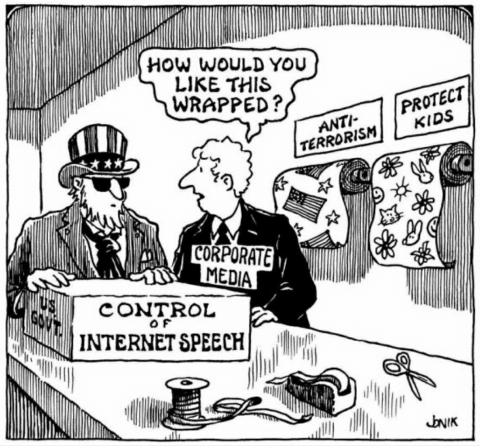Innocent until proven guilty is still the legal standard in every reputable legal jurisdiction but there are always difficulties. With search warrants the target of the search warrant will often have prior warning that a warrant is to be issued against him or her - potentially allowing them to destroy evidence of criminality before it can be found. Most jurisdictions now have what are called ‘Anton Piller Orders’ which are a legal mechanism, authorised by a judge in camera, to carry out surprise searches and seizures to prevent the destruction of evidence where the judge believes there is a credible risk of this. And just because evidence is found it doesn’t automatically mean that the person concerned is guilty - he or she still has to be convicted in a court by a jury to the evidential standard of beyond reasonable doubt.
The trouble is that the privacy thing rears its head everywhere and there is no easy solution.
So, for example, would you support the judicial process being open, transparent and subject to outside scrutiny, rather than being carried out in secret and behind closed doors?
Of course you would, because that helps ensure that it is fair, unbiased and not open to undue manipulation or influence.
But what about sexual offence cases? Here just the accusation of child abuse, or rape, etc can ruin that individual’s life, career, marriage forever - even if when the case comes to trial that person is found to be totally innocent of the crime he or she is accused of. But by that time it is too late and the damage is done.
So again, does the individual’s right to privacy get trumped by a wider public concern that justice needs to be done and seen to be done?
Personally I am totally against uncontrolled ‘fishing expeditions’ to find evidence where there is no credible reason to believe that such evidence even exists, but I do understand the argument that technological developments need to keep pace and adapt to address the increasing use of technology by criminals to carry out crime and hide the evidence of that crime.
As a final example, I recently worked on a fraud case involving crypto-currency (bitcoin). Here it was child’s play to hide evidence of illegal profits - there are no banks, no overall management, and no names associated with Bitcoin accounts - so it is difficult to regulate. Because evidence can be hidden in an anonymous and highly fragmented manner across many servers in different countries it is highly susceptible to fraud. This is a brilliant example of where criminals can easily exploit new technology and where law enforcement has yet to catch up in any meaningful way.
